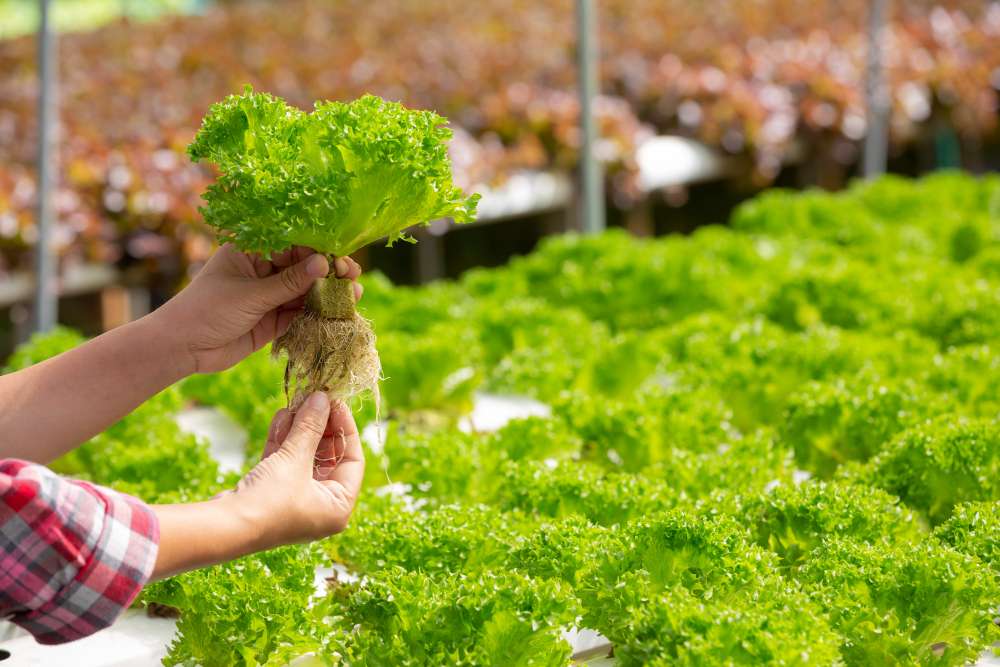Aquaponics is revolutionizing the way we think about sustainable food production, combining aquaculture and hydroponics in a symbiotic system that maximizes efficiency and minimizes environmental impact. In this blog post, we’ll delve into the numerous benefits of learning about aquaponics and how it can pave the way for a rewarding career in sustainable agriculture.

Job Market Trends
The demand for sustainable food production methods is on the rise, driving growth in the aquaponics industry. From commercial aquaponics farming to research, education, and consulting, opportunities abound for individuals passionate about sustainable agriculture. According to industry reports, the aquaponics sector is projected to witness a X% growth in employment opportunities over the next decade, making it an attractive field for aspiring professionals.
Education and Training Requirements
Achieving success in aquaponics requires a blend of academic knowledge and practical experience. Aspiring professionals can pursue various educational pathways, including specialized courses, certifications, and degree programs in aquaponics. Hands-on training, workshops, and internships are equally essential for gaining practical experience and mastering the intricacies of aquaponics systems.
Salary and Benefits
Careers in aquaponics offer not only competitive salaries but also a host of non-monetary benefits. Professionals in aquaponics management and consulting roles can earn lucrative incomes while enjoying job satisfaction and personal fulfillment. Additionally, opportunities for flexible work arrangements, travel, and contributing to sustainability efforts make aquaponics careers highly rewarding.
Work-Life Balance
Contrary to popular belief, careers in aquaponics offer a unique blend of outdoor work, hands-on experiences, and opportunities for work-life balance. While aquaponics operations may involve seasonal fluctuations in workload, many professionals find fulfillment in connecting with nature and contributing to sustainable food production.
Job Stability
One of the most significant advantages of pursuing a career in aquaponics is the stability it offers. With the increasing demand for sustainable food production methods, the need for skilled professionals in aquaponics remains constant. Unlike some industries prone to economic downturns, aquaponics provides long-term career stability and opportunities for growth.
Networking Opportunities
Building a strong network of industry contacts is crucial for success in aquaponics. Professionals can connect with fellow aquaponics farmers, researchers, suppliers, and policymakers through networking events, conferences, and online platforms. By fostering meaningful relationships and staying updated on industry trends, individuals can unlock new opportunities for collaboration and career advancement.
Industry Specifics
Aquaponics systems utilize fish waste to fertilize plants, creating a closed-loop ecosystem that maximizes resource efficiency. Understanding the environmental and economic benefits of aquaponics compared to traditional agriculture methods is essential for driving sustainable food production and environmental conservation efforts.
Skills Gap Analysis
Identifying and addressing skills gaps is essential for success in aquaponics. In addition to technical knowledge in system design, water chemistry management, and plant and fish care, professionals must possess strong analytical, problem-solving, and communication skills. Continuous learning and staying updated on emerging trends and technologies are key to staying competitive in this dynamic field.
Future Trends and Technology
As technology continues to evolve, so too does the landscape of aquaponics. From automation and vertical farming to integration with renewable energy systems, advancements in technology are reshaping the way food is produced in aquaponics systems. Professionals must embrace innovation and adapt to emerging trends to drive sustainability and efficiency in aquaponics operations.
Risk Assessment
Like any industry, aquaponics comes with its share of risks and challenges. From system failures and disease outbreaks to regulatory compliance and market volatility, professionals must be prepared to navigate uncertainties. Implementing risk management strategies, monitoring systems, and contingency plans are essential for ensuring the long-term success and sustainability of aquaponics operations.
Additional Resources:
- Unlocking the Future: A Career in 3D Printing Applications in Product Design
- Unlocking Your Potential: Exploring Career Opportunities in Personal Development and Self-Improvement
- Master Your Wealth: Exploring Careers in Personal Finance and Investment
- Building Wealth, Building Futures: Exploring Careers in Personal Finance and Wealth Management
- Navigating the Cosmos: Exploring Careers in Planetary Science and Exploration
- Shaping the Future: A Career in Education
- Behind the Scenes: A Career in Film Studies
- Mastering Money: A Career in Financial Literacy and Money Management
- Streamlining Success: The Advantages of Pursuing a Course in Industrial Automation
- Introduction to Accounting Principles
Table of Contents
Categories:
Latest Posts:
FAQs
Q: What career opportunities are available in aquaponics?
A: Career opportunities in aquaponics span a wide range of roles, including aquaponics farm management, research, education, consulting, and equipment manufacturing.
Q: Is a degree in aquaponics necessary to work in the industry?
A: While a degree in aquaponics or a related field can be beneficial for certain roles, practical experience, hands-on training, and specialized courses are equally important for success in the aquaponics industry.
Q: How can I get started in aquaponics if I have no prior experience?
A: There are many entry-level positions available in aquaponics, such as farm laborer, technician, or assistant. Volunteering on aquaponics farms or participating in workshops and training programs can provide valuable hands-on experience and insights into the industry.
